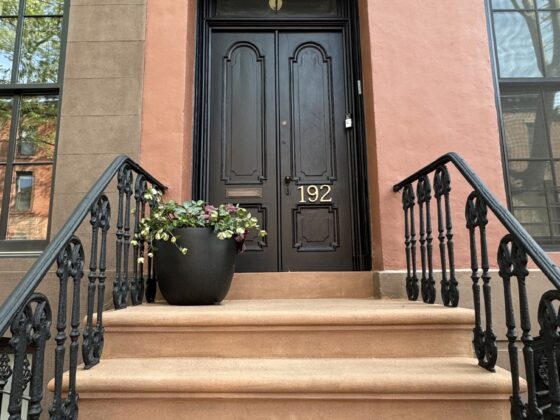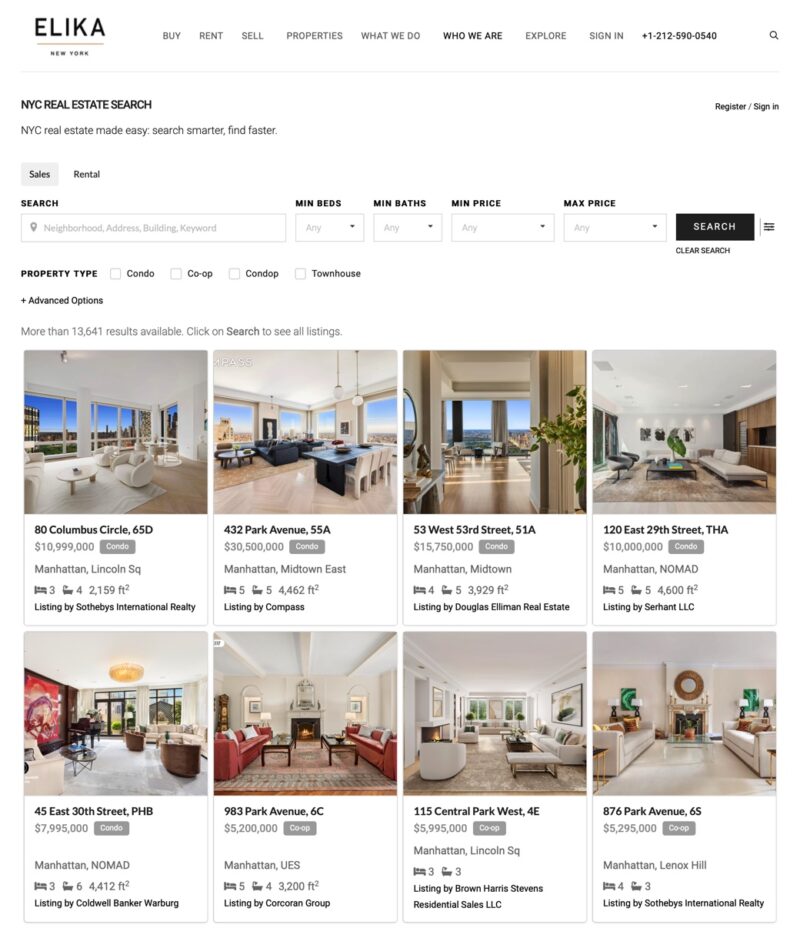Table of Contents Show
Once a beacon of prosperity, New York City’s housing market now feels like a fortress to those trying to break in. With persistent high prices, mortgage rates hovering above 7%, and home affordability at historic lows, buyers face daunting challenges. Yet, even amid these obstacles, strategic buyers can still find value—especially if they leverage the right tools, including negotiation based on comparable market analysis (CMA) and appraisals.
Though the market may seem soft, it’s not necessarily a buyer’s paradise. A lack of affordability has led to a stagnant market, creating opportunities for savvy buyers who understand the nuances of purchasing in a city that remains one of the world’s most coveted real estate markets.
Why Buying Still Makes Sense Despite High CostsWhy Buying Still Makes Sense Despite High Costs
1. Long-Term Wealth Creation and Stability1. Long-Term Wealth Creation and Stability
Despite current headwinds, New York’s real estate market has historically proven to be a solid long-term investment. Over the past decade, property values in Manhattan have increased by more than 40%, according to data from Miller Samuel. Even during downturns, such as the 2008 financial crisis, New York’s market rebounded faster and more robust than many others, thanks to its status as a global financial hub.
“New York real estate is not just about today—it’s about the next decade or two,” said Gea Elika, founder of ELIKA Real Estate. “Buying now, even at higher interest rates, allows homeowners to benefit from future equity growth and stability in a city that always reinvents itself.”
2. Unlocking Negotiation Opportunities in a Soft Market2. Unlocking Negotiation Opportunities in a Soft Market
With affordability challenges keeping many buyers on the sidelines, the market has softened in certain areas. This presents an opportunity to negotiate better deals, particularly on properties that have been on the market for extended periods.
Boost Your Credit Score to Secure Better RatesBoost Your Credit Score to Secure Better Rates
A lower mortgage rate can significantly reduce monthly payments and overall loan costs. Improving your credit score before applying for a mortgage is one of the most effective ways to achieve this. Lenders offer better rates to borrowers with solid credit, making it a crucial step in maximizing affordability. Simple steps like paying down debt, correcting errors on credit reports, and maintaining a low credit utilization ratio can make a meaningful difference.
Key strategies include:Key strategies include:
- Comparable Market Analysis (CMA): Before making an offer, review recent sales of similar properties in the area to gauge fair market value. A CMA provides a data-driven approach to negotiation, ensuring buyers don’t overpay in a cooling market.
- Appraisals: If a property’s asking price exceeds its appraised value, buyers can use this as leverage to negotiate a lower price. Many sellers, aware of the market’s stagnation, are open to reasonable concessions.
- Contingencies: Including contingencies, such as inspection, financing, or appraisal contingencies, gives buyers leverage. If issues arise during inspection or the appraisal is lower than expected, buyers can renegotiate the price or back out of the deal without penalties.
- Seller Concessions: Requesting seller concessions, like covering closing costs or offering repair credits, can reduce upfront expenses. In a stagnant market, sellers may be more willing to agree to such terms to close the deal.
- Flexible Closing Dates: Offering a closing date that aligns with the seller’s timeline can be a strong bargaining chip. If a seller is eager to move quickly or needs time to relocate, flexibility on the buyer’s part can lead to price reductions or other favorable terms.
- All-Cash Offers or Pre-Approval: If possible, making an all-cash offer or providing proof of mortgage pre-approval strengthens the offer. Sellers are more likely to negotiate with buyers who have secure financing.
- Identifying Motivated Sellers: Look for properties where the seller has a pressing reason to sell (job relocation, financial strain, or divorce). These sellers may be more open to price reductions or concessions.
“Don’t be afraid to negotiate,” Elika advised. “Sellers know the market isn’t moving as fast, and a well-informed buyer with a solid CMA or appraisal can often secure a better deal.”
3. Renting vs. Buying: The Cost Comparison3. Renting vs. Buying: The Cost Comparison
While renting may seem like a safer bet, it can be a costly long-term strategy, given current conditions. The average rent for a one-bedroom apartment in Manhattan now exceeds $4,100 per month, translating to nearly $50,000 annually. Over a decade, that’s $500,000 spent without building any equity.
In contrast, even with high mortgage rates, monthly payments contribute to ownership, allowing buyers to build wealth. Additionally, homeowners can refinance as mortgage rates decline, reducing their monthly costs and boosting their equity position.
Adapting to a New Market Reality: Tips for BuyersAdapting to a New Market Reality: Tips for Buyers
1. Expand Your Search Area1. Expand Your Search Area
Consider looking beyond traditional neighborhoods. While Manhattan remains a dream for many, boroughs like Queens, the Bronx, and Staten Island offer more affordable options. Areas like Astoria, Inwood, and Bay Ridge are gaining popularity among first-time buyers seeking value without sacrificing access to public transportation and amenities.
2. First-Time Buyer Assistance2. First-Time Buyer Assistance
New York offers several programs aimed at easing the financial burden of homeownership. The HomeFirst Down Payment Assistance Program provides up to $100,000 in down payment assistance, while SONYMA offers competitive mortgage rates and lower down payment requirements.
3. The Impact of Remote Work3. The Impact of Remote Work
The rise of remote work has shifted housing dynamics, with buyers prioritizing space and affordability over proximity to the office. Suburban areas and less densely populated boroughs have seen increased demand, offering buyers more options at lower prices.
“Remote work has changed everything,” Elika noted. “Buyers now have the freedom to look for homes that offer more space and better value, even if it means a longer commute.”
Policy Reforms to Address AffordabilityPolicy Reforms to Address Affordability
While individual strategies can help buyers, systemic changes are needed to address New York’s affordability crisis:
- Zoning Reform: Allowing higher-density housing near transit hubs could increase supply and alleviate price pressures.
- Affordable Housing Programs: Expanding programs like 421-a would incentivize developers to build more affordable units.
- Property Tax Relief: Reducing property tax burdens could make homeownership more accessible for middle-class families.
- Enhanced Real Property Tax Credit: This credit is available to NYC residents with a household income of less than $200,000 who pay property taxes or rent. Eligible individuals can receive a credit of up to $500, providing relief to those balancing high housing costs with other expenses.
- School Tax Relief (STAR) Program: The STAR program offers property tax relief to eligible homeowners in New York State, including NYC. There are two types of STAR benefits: Basic STAR and Enhanced STAR. Basic STAR, available to homeowners with an income of $250,000 or less, can reduce property taxes by approximately $300 to $350 annually. Enhanced STAR, available to seniors aged 65 or older with an income of $93,200 or less, provides more significant savings, reducing property taxes by around $650 to $700 annually. These reductions directly apply to the homeowner’s property tax bill, offering substantial financial relief, especially in high-cost areas like NYC.
- Property Tax Rebates: In recent years, NYC has issued property tax rebates for eligible homeowners. These rebates are often targeted at lower-income households and can provide significant savings, sometimes from $300 to $600 annually.
The Psychological Benefits of HomeownershipThe Psychological Benefits of Homeownership
Beyond financial considerations, homeownership provides intangible benefits. It offers security, stability, and pride—especially important in a fast-paced, ever-changing city like New York. Owning a home can foster a deeper connection to the community and provide a sanctuary amid the city’s hustle.
“Homeownership is about more than numbers,” Elika emphasized. “It’s about creating a home, a space that’s truly yours in a city that’s always moving.”
Why It’s Still Worth ItWhy It’s Still Worth It
Buying a home in New York City may feel daunting, but with the right approach—armed with data, negotiation strategies, and a long-term perspective—it remains a worthwhile investment. For those ready to navigate the complexities of today’s market, the rewards can be substantial, both financially and personally.
As New York continues evolving, its real estate market will face challenges. However, for those who take the plunge, the opportunity to own a piece of the city is as compelling as ever.








